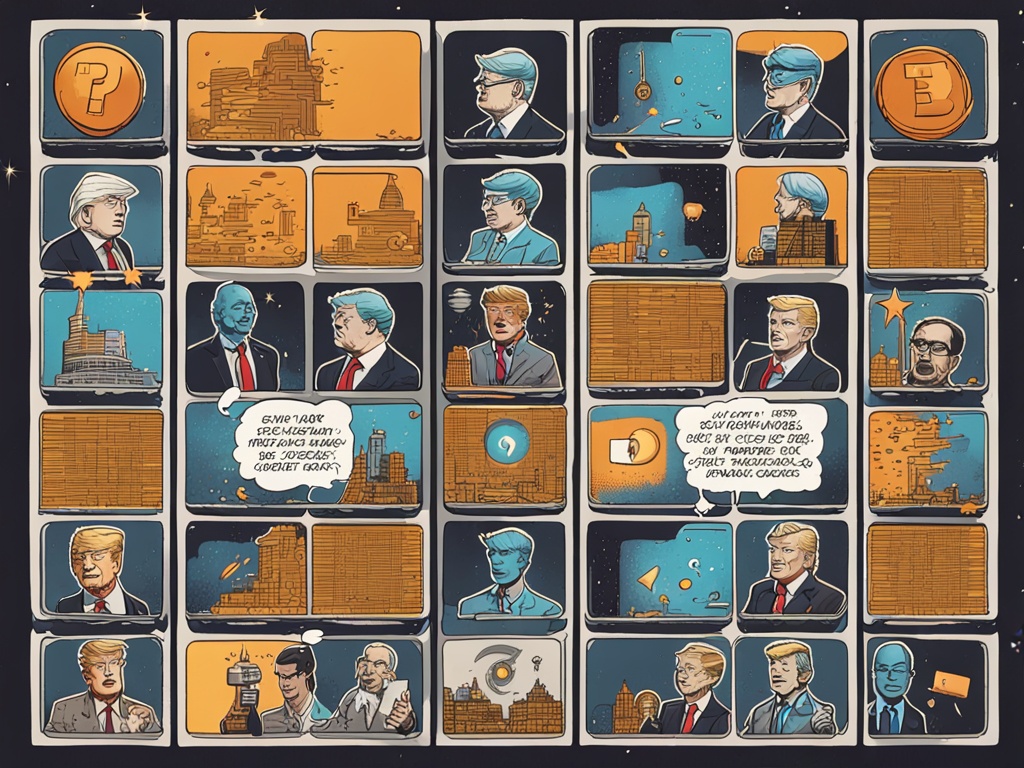Exploring the Introduction of Blockchain for Federal Voting in the USA 🚀
This year, significant discussions are underway regarding the implementation of a federal voting system based on Blockchain technology in the United States. The initiative involves key figures including the elected President Donald Trump and the prospective Department of Government Efficiency (D.O.G.E). Several renowned platforms such as Cardano, X, Hyperledger, and Hedera are being considered for this transformative project.
Trump and D.O.G.E: A Revolutionary Approach to Voting Systems 🗳️
President Donald Trump and the future Department of Government Efficiency are actively exploring a federal voting and identity verification system utilizing Blockchain. Shayyan Salehi, a former director at Oracle and a participant in the World Economic Forum, shared insights on social media concerning this collaboration.
According to Salehi, the forthcoming system aims to be developed in collaboration with various tech giants, including X, Cardano, Hyperledger, and Hedera. The legislative framework would mandate all states to adopt the “eVote” platform to ensure the integrity of elections nationwide. Trump’s intent behind this initiative is to combat electoral fraud, which he fears could arise during the presidential elections in 2028.
This federal voting and identity verification system centered on Blockchain is envisioned to operate through the infrastructures provided by Cardano, X, Hyperledger, and Hedera. The primary aim is to promote electoral integrity while mitigating the potential for fraud in upcoming U.S. elections.
Blockchain as a Safeguard Against Electoral Fraud in 2028 🔒
Continuing from Salehi’s commentary, experts emphasize that incorporating Blockchain could serve as a safeguard against possible electoral fraud as the 2028 presidential elections approach. It appears that there are plans to expedite the execution of this system.
On social platforms, speculation is already circulating regarding the upcoming collaboration and advancements. Recently, a notable figure from Cardano visited SpaceX, sparking various discussions about the project.
This suggests that there are moving parts in the teams of the platforms involved in this innovative project spearheaded by Trump and D.O.G.E. In particular, a snapshot captured Charles Hoskinson, the founder of Cardano, at Elon Musk’s SpaceX location, hinting at potential collaborative discussions ahead.
The Current Trends in Cryptocurrency 🪙
As you reflect on Trump’s potential moves toward Blockchain and the broader cryptocurrency landscape, it’s noteworthy that a significant bull run in cryptocurrencies is currently in progress. Prices are rising dramatically, with Bitcoin (BTC) taking the lead, consistently breaking its all-time highs for more than ten days now. At this moment, Bitcoin has reached a value of $92,000, peaking at $93,400 on November 13.
- Reports indicate that analysts predict Bitcoin could reach the 100K mark within this month, potentially in the coming days.
- If this projection shifts, the next anticipated milestone for Bitcoin may occur in December.
Meanwhile, Ethereum (ETH) has shown increased activity but still sits below its all-time high of $4,700 from November 2021, currently valued at $3,127.
Another notable performer is Ripple (XRP), which has surged by 101% over the past week, reflecting the dynamic nature of the crypto market.
Key Performers Among Relevant Blockchains 💹
Among the cryptocurrencies related to the platforms involved in Trump’s voting project, Cardano (ADA) is priced at $0.78, marking its highest value in 2024. On the other hand, Hedera (HBAR) is currently at $0.11, experiencing a remarkable 115% increase in the past week, indicating strong interest and activity in these blockchain networks.
By concentrating on the integration of Blockchain into the voting system, the emphasis is increasingly on ensuring electoral fairness and establishing a secure framework for future elections. This exploration marks a pivotal moment in the intersection of technology and democracy.
Overall, the convergence of Blockchain technology with federal voting systems represents a significant advancement towards the modernization of electoral processes in the United States.





 By
By
 By
By



 By
By